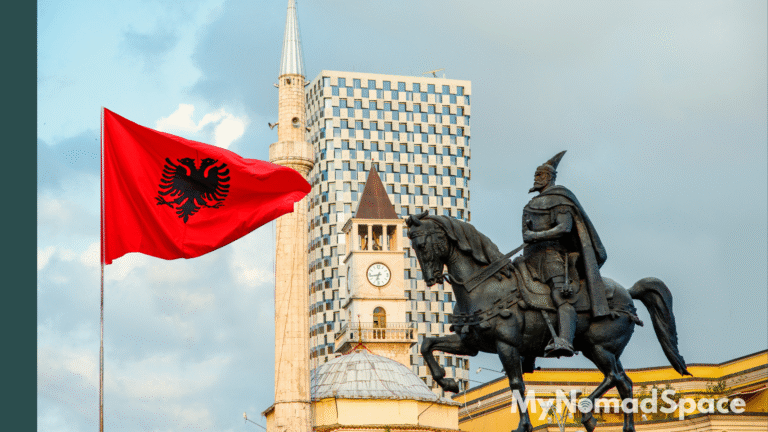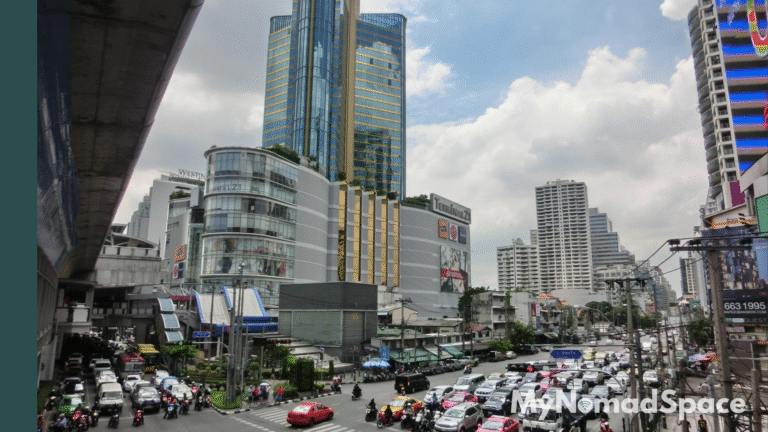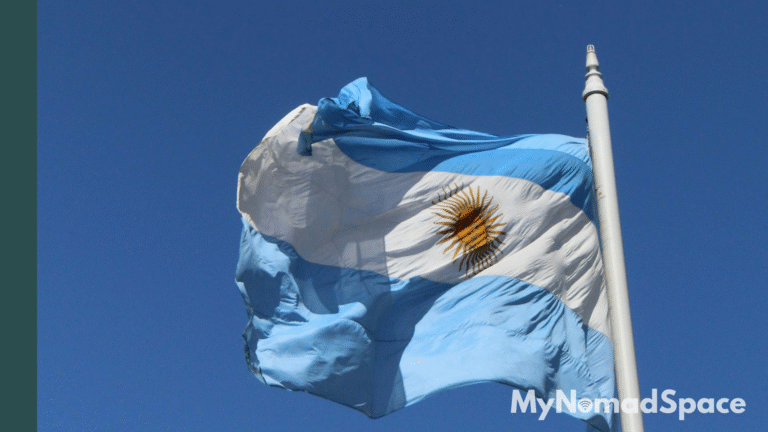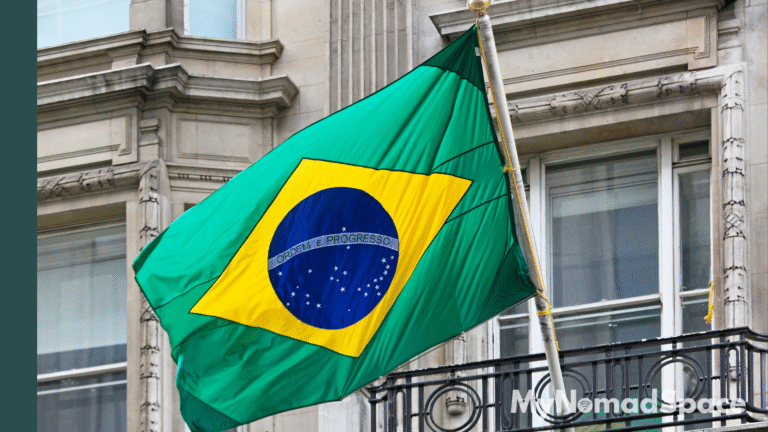If you’ve been bouncing around Europe or Southeast Asia and are looking for somewhere a little different – but still remote-work friendly – you might want to give Albania a serious look in 2026.
This Balkan country, which shares borders with Montenegro, Kosovo, North Macedonia and Greece, has been flying under the radar for years, but lately, it’s been getting more attention from digital nomads. And for good reason.
And part of what makes Albania so interesting is its rich, layered history. This little nation has seen it all: ancient Greek and Roman settlements, Ottoman rule for centuries and a more recent chapter that’s both unique and intense – a period of total isolation under a strict communist regime that only ended in the early 1990s.
You’ll still feel traces of that past, whether you’re spotting old bunkers scattered across the countryside, visiting hilltop castles or chatting with locals who grew up during that era. The result is a place that feels deeply authentic, with a mix of cultures, religions and architectural styles you don’t quite get anywhere else in Europe.
We’ve spent extended time in Albania and always find it a fascinating place to return to. From Tirana to Vlore, we’ve based ourselves in different parts of the country, giving us a well-rounded perspective on what it’s really like to stay and work here.
It’s affordable, beautiful and still feels like a hidden gem
One of the biggest draws? Albania is affordable compared to most of Western Europe. You can find long-term rentals near the beach for a fraction of what you’d pay in countries like Spain or Italy. Coffee costs about a euro in cafes, and eating out regularly won’t destroy your budget. Taking Tirana as an example, Numbeo estimates that a single person’s monthly expenses, excluding rent, fall between £520 ($700) and £620 ($800).
And it’s not just affordable – it’s beautiful in a way that still feels raw and untouched. You’ve got the Adriatic and Ionian coastlines, complete with turquoise waters and quiet bays that feel like they belong in a postcard. Then there are the Albanian Alps up north, dramatic and jagged, perfect if you like hiking or just want to get off the grid for a while.
Remote workers are gravitating toward cities like Tirana, the capital and cultural hub; Sarande, a beach town with a growing expat scene; Vlore, where the sea meets the mountains; Durres, one of the oldest cities in the country with easy access to the capital; and Berat, a quiet, historic hill town with serious charm.
The best part? You’re not just stuck in one type of landscape. You can go from mountains to beach to lakeside villages all in the span of a few hours. There are ancient ruins to wander through, UNESCO-listed towns like Gjirokaster and Berat to get lost in and hidden spots along the coast where you might have a whole stretch of beach to yourself – even in high season.
Whether you’re into history, hiking, photography, swimming or just looking for a peaceful place to focus on your next big project, Albania really does offer a bit of everything. And because it’s still not totally overrun by tourists or influencers (yet), there’s a freshness and authenticity here that’s getting harder to find elsewhere in Europe.
Sounds pretty ideal, doesn’t it?

How's the Wi-Fi in Albania? It’s surprisingly good
Let’s be honest: strong Wi-Fi is non-negotiable for digital nomads. Albania actually delivers here. Popular destinations up and down the country generally have solid average internet speeds.
To give you an idea of what internet is like in Albania, let’s take Tirana – the capital – as an example. Average Wi-Fi speeds there are around 68 Mbps for downloads and 12 Mbps for uploads, according to TestMy. If you’re not super techy, don’t worry – that’s more than fast enough for Zoom calls, uploading files, streaming videos and just about anything else you need for remote work.
Do you need a visa? Probably not – there’s a digital nomad option too
Albania is becoming an increasingly attractive option for remote workers. U.S. citizens, for example, can stay for up to one full year without a visa – a rare opportunity that makes it ideal for long-term digital nomads.
For most EU, UK, Canadian, and Australian citizens, stays in Albania are limited to 90 days in any 180-day period. Extensions might be possible, but require a bit of paperwork.
But here’s the exciting part: Albania now offers a residence permit specifically for digital nomads, called the Unique Permit (also known as the Unique Residence Permit). It launched to attract remote professionals who work for non-Albanian companies and want to live in the country for a longer period.
What’s the vibe like? It's friendly, low-key and very scenic
Albania doesn’t have the giant digital nomad scene you’ll find in places like Lisbon or Chiang Mai – and that’s part of the appeal. There’s a growing community, especially in Tirana and along the coast, but things feel more local and relaxed. It’s easy to find your own rhythm here, whether that means starting your day with a strong espresso at a corner cafe or taking an afternoon stroll along the promenade in Vlore.
The locals are friendly, many young people speak English and the country’s natural beauty is seriously underrated – turquoise beaches like Ksamil Beach, rugged mountains such as Mount Korab and ancient hill towns such as Berat.
There’s a kind of quiet charm to daily life – no frantic pace (except for many drivers on the road!), no pressure to constantly be on the move. People take their time here, and it rubs off on you in the best possible way.
Even the cities feel manageable. Tirana is vibrant but not overwhelming, with colorful buildings, outdoor markets and a creative undercurrent that’s hard to miss. And once you’ve had your fill of city life, the countryside and coast are never far.
The downsides? A few to keep in mind
No place is perfect. Public transport is still a bit old-school, especially if you’re used to zipping around on high-speed trains or ordering a rideshare in seconds. Most travel between cities is done via bus or furgon (minibus), which can be an adventure in itself – sometimes fine, sometimes frustrating.
Bureaucracy can be slow, especially when it comes to things like paperwork. It’s definitely doable, but patience is key. And while the healthcare system is improving, it’s not yet on par with Western Europe, so having good international health insurance is highly recommended – just for peace of mind.
Another thing to keep in mind: some areas – especially rural ones – may have limited infrastructure, from inconsistent internet to patchy roads or power outages. It’s not an everyday issue, but it’s worth being prepared if you plan to live a bit more off the grid. That said, major cities and coastal areas tend to be well-connected and easy to navigate.
There’s also the fact that Albania is still developing its tourist infrastructure. That’s part of what makes it feel authentic, but it also means things aren’t always as polished or predictable as in more established destinations.
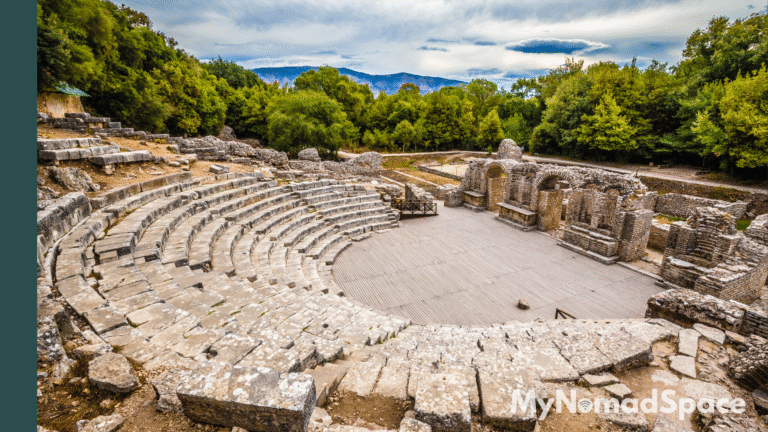
So, is Albania worth it for digital nomads in 2026?
Absolutely. if you’re looking for an affordable, scenic and laid-back place to live and work, Albania ticks a lot of boxes. It’s still under-the-radar enough to feel like a discovery, but modern enough to support your remote work lifestyle. You get incredible value for your money, strong average Wi-Fi speeds in most urban areas and a warm, welcoming culture that’s easy to fall into.
Plus, there’s something energising about being in a place that’s just beginning to gain traction among digital nomads. You’re not following a crowd, you’re getting in ahead of the curve. There’s space to breathe here, space to focus and space to just enjoy life a little more slowly.
Whether you’re after mountains, beaches or just a quieter corner of Europe to work on your next big thing, Albania offers a rare mix of freedom, beauty and simplicity. It’s not perfect, but that’s part of what makes it feel real.
So yes, Albania is definitely worth considering in 2026. Just don’t be surprised if you come for a few weeks and end up staying much longer than planned.
This article was updated on January 1st, 2026.

